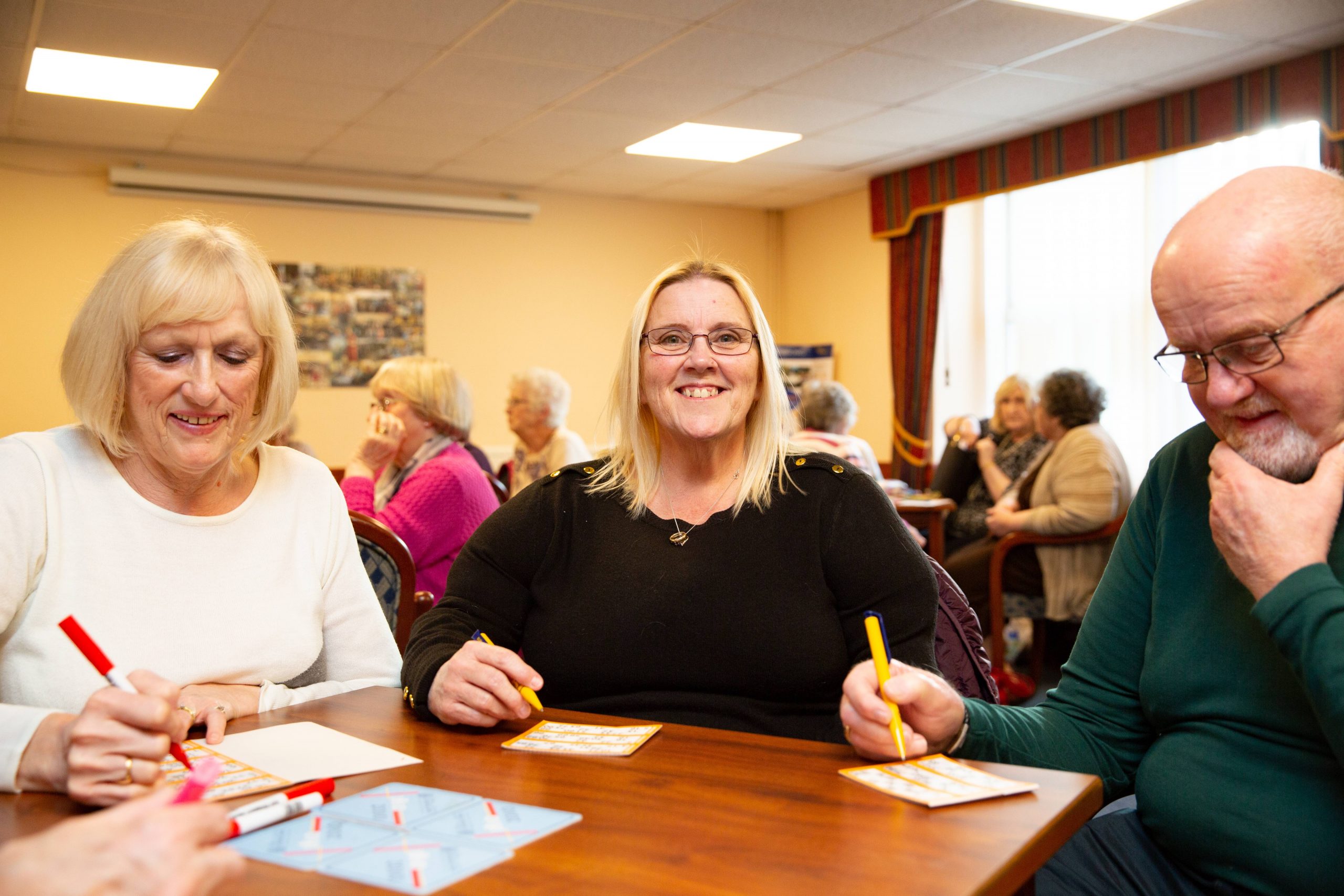Expert tips to keep connected in retirement
Many people count down the days until retirement, looking forward to life without responsibility and the freedom to do whatever, whenever.
But for many, this open-ended venture can result in a loss of freedom.
The lack of structure, a huge change in routine and shifts in the way we socialise with friends and colleagues, can leave many people feeling lonely and isolated.
The good news is – by giving your freedom the same attention and focus you gave your career, you can build a social life to ensure you feel supported, confident and fulfilled.

Dr J Wild
Dr Wild, an Associate Professor of Clinical Psychology at Oxford University and author of Be Extraordinary: 7 Key Skills to Transform your Life from Ordinary to Extraordinary, explains:
“Often, we think of something like retirement as a good thing but it’s a massive life transition. People can struggle to find an identity outside of the workplace.
“The value of friends is immeasurable in this situation – for offering support and encouraging social interactions that help prevent feelings of isolation. Loneliness is a risk factor for depression and poor mental health, so having friends to call on is vitally important.
“The trouble is, mixing with existing friends may not be that easy. Many may still be working or on very different schedules. Taking steps to meet new people and expand support networks is a very positive step.”
Building a support network
It’s all very well telling people that making new friends is the answer to all their woes, but even those who have been social butterflies all their life can find themselves struggling with this prospect.
Dr Wild says: “Making friends in later life can be disarming, but it’s important to remember that doing so as an older adult is completely different to making friends at school or in a work environment.
“As adults, you have more experience and are less likely to be unkind in social situations, so it will be far more welcoming. People are likely to be interested in what you have to say and in sharing connections – don’t forget, many will be in the same boat as you.”
A study¹ by the German Institute for Economic Research in 2018 found that people who made more social goals for the upcoming year, like seeing friends more, volunteering for a charity or helping someone in need, had jumps in life satisfaction within a year. This suggests that connecting with other people makes us feel happier and more fulfilled in the long-term.
A reliable approach is to focus on finding people with similar interests. This can be by joining a group with hobbies like your own, or taking up an activity such as an exercise class, sport, or a new craft like watercolour painting or calligraphy.
Friendship groups such as the Oddfellows are designed to encourage friendship and run events to suit lots of different tastes and interests, from coffee mornings and evening socials, to theatre trips and holidays.
Dr Wild adds: “Try to think outside of the box. If you like to watch football on TV try going to a local game, or instead of buying greeting cards, you could sign up for an introductory watercolour or calligraphy class to learn how to make them. Not only will you benefit from meeting new people, you’ll get your creative juices flowing, which research shows increases our happy feelings.”
“Making friends in these circumstances will come more naturally because you’ll be absorbing yourself an activity with people who share a similar interest.”

Members of the local Oddfellows friendship group in Nottingham recently came together for a brewery tour.
Taking the first step
Dr Wild suggests anyone feeling unsure about meeting new people should try the ‘Three Minute Carrot Method’ – a technique to relieve some of the pressure of new social situations.
Dr Wild says: “The Three Minute Carrot Method basically works by ‘dangling’ a short-term incentive to try new things. It gives you permission to stop or leave something early. So, instead of pressuring yourself to go along to an hour-long event or activity, you are only challenging yourself to stay for three minutes.
“After three minutes you can decide if you are going to turn around and go home, or if you are going to carry on. Because there is less pressure on the situation, the result is often the latter.”
List your concerns
Another way to build confidence ahead of new social situations is vocalising – or writing down – what is concerning you so you can challenge it.
“Make a note of your worries about socialising and how you think people will respond to you,” advises Dr Wild. “Then try the social activity, going out of your way to spot signs that people are being kind and friendly rather than focusing on how you might be feeling.
“Science shows us that 88% of our worries never happen. You’ll find people do care and are keen to extend kindness. This can be enormously rewarding for them and for you.”
Be confident
The ‘Future Feeling Thinking’ technique is another way to build up confidence to try something new or take part in something you are anxious about.
Rather than concentrating on your emotions or low mood and then deciding to avoid socialising altogether, focus instead on how you might feel at the end of the activity. Use the knowledge of how you might feel afterwards as motivation to get started.
Dr Wild explains: “Meeting friends for lunch will undoubtedly lift your spirits, so concentrate on that feeling before meeting your friends. It will give you a bit of courage to socialise again.”
Make plans and stick to them
A lack of routine can also be responsible for bashing our confidence and making us feel vulnerable. Planning ahead – even if it’s just for a day – is a good way to combat this.
“Planning ahead is a simple way of improving wellbeing,” says Dr Wild. “Every night, including the weekends, you make a plan for the day after – making sure you factor in an enjoyable activity. You can think about it in half an hour chunks, such as when you are going to shower, walk to the post office etc.
“It sounds simple and obvious, but studies have found this dramatically reduces psychological distress and improves wellbeing. If you have a routine in place for the next day, it frees up mental energy to deal with new things, problem solve effectively and reduce the opportunity to dwell on negative feelings.”
Banish burdensome thoughts
Getting older may mean we are free from burdens, but it can mean we feel burdensome on others, especially families or busy friends.
But as Dr Wild says, it’s important to remember that friendship groups or activities for older adults are focussed on peers – you are all in the same boat. People are willing to lend a listening ear because they know it will be reciprocated without question.
Find your freedom
Whether a lack of routine has hindered your ability to enjoy your retirement, or anxiety around meeting new people is putting you off, now is the time to make plans to enjoy your freedom.
To find out more about social events and activities organised by an Oddfellows friendship group near to where you live, go to their online Events Finder or contact them for a free information pack.
In addition to attending regular social events, members of the Oddfellows can access financial benefits and welfare support, with a dedicated care helpline and citizens advice team, and a travel club∗.
Further advice and insight from Dr Jennifer Wild can be found in her book, Be Extraordinary: 7 Key Skills to Transform your Life from Ordinary to Extraordinary, which is available on Amazon or at www.beextraordinarybook.com.

Pictured: Dr Jennifer Wild, Associate Professor of Clinical Psychology at Oxford University.
Lead Image: After retiring earlier than expected, Barbara Spencer, centre, found the friendship and support of her local Oddfellows in Market Deeping invaluable.
¹Successfully Striving for Happiness: Socially Engaged Pursuits Predict Increases in Life Satisfaction.
∗Terms and conditions apply to all member benefits and services. For details visit www.oddfellows.co.uk/terms-conditions, or call 0800 028 1810.
ADVERTORIAL




















